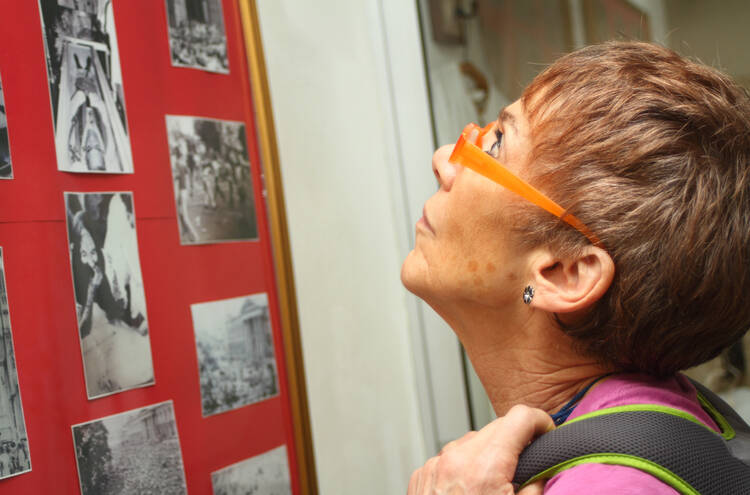Representatives of U.S. religious and human rights organizations called for the Salvadoran government to reopen the investigation of the 1980 killing of three U.S. nuns and a lay missionary.
It is important to "ask the Salvadoran government and prosecutors to open this case, so that the masterminds of this crime do not walk free, with impunity," said Claire White, who came on behalf of her father, former Ambassador Robert White, who died in January.
White told Catholic News Service the U.S. government should pressure the Salvadoran authorities to do a proper investigation and not let the intellectual authors go unpunished.
On Dec. 2, 1980, Maryknoll Sisters Maura Clark and Ita Ford, Ursuline Sister Dorothy Kazel and lay missionary Jean Donovan were abducted, raped and murdered by members of the National Guard, when the North Americans traveled by car from the airport. Civil war in El Salvador had erupted earlier that year. The churchwomen were in El Salvador to work with refugees of that conflict, but were regarded as leftist by the government.
The U.N. Truth Commission, established in 1992 to investigate cases of political violence during the civil war, concluded that then-Col. Eugenio Vides Casanova, director of the National Guard, knew that a unit from his command had carried out the assassinations and facilitated the concealment of the facts, which hampered the investigation. In 1984, four guardsmen were found guilty of the killings and convicted to 30 years in prison, but those who planned the murders and gave the orders have never been brought to justice, said some of the more than 100 North Americans who traveled to El Salvador to commemorate the 35th anniversary of the murders.
"There may be justice if we North American women go back and do what we need to do in terms of strategizing to make that happen," Ursuline Sister Janet Marie Peterworth of Louisville, Kentucky, told CNS during a Nov. 30 memorial service held in San Salvador's Parque Cuscatlan.
She recalled the last letters she received from Donovan from El Salvador and added, "It's cold and rainy in December in the States, and I can't stop thinking of Jean Donovan and what she said in one of her last correspondence: 'I would come home, but where else can you find roses in December?'"
"She did not come home, she decided to stay," she added, with tears rolling down her cheek.
Sister Peterworth said Donovan used to say that the Salvadoran military would not kill "an American blond."
"But they did," Sister Peterworth added.
Isabel Hernandez, El Salvador office director of the SHARE Foundation, said: "We don't want revenge because we are Christians, but we do want justice, the truth, we want to know who gave the order." She said the 1992 Salvadoran amnesty law must be repealed because it protects those responsible for the murders of the churchwomen and many other victims.
In 2002, Vides Casanova and former Defense Minister Jose Guillermo Garcia, who were both granted residence in the United States, were found responsible by a Florida jury in a federal civil case for the torture of three Salvadorans. In April 2015, Vides Casanova was deported to El Salvador for participating and assisting the torture and assassination of thousands of victims, including the four churchwomen.
The four guardsmen were convicted because they were not eligible for amnesty, as their case was regarded as nonpolitical.
During the current visit, U.S. delegates visited the tomb of Archbishop Oscar Romero, assassinated in March 1980. They also went to Central American University, where six Jesuit priests and two women were killed in November 1989 by a military unit.
On Dec. 2, they were to travel to Santiago Nonualco, a small town in La Paz department, to attend a memorial service at the very spot where the three nuns and the lay missionary were shot dead.








